A series of important meetings aimed at opening new opportunities for supporting Ukrainian media, particularly regional and frontline outlets, was held by the President of the National Union of Journalists of Ukraine (NUJU), Sergiy Tomilenko, in Lithuania.
The main news is that he discussed with Ruslanas Iržičevičius, the Director of the Lithuanian Media Support Foundation (Medijų rėmimo fondas), the possibility of expanding this institution’s programs to Ukraine.
This is a very pragmatic model: a Lithuanian institution, created and financed by the Lithuanian state, but independent in its decisions and relying on professional expertise, can open a Ukrainian direction — provided that the Lithuanian Government provides targeted funding and/or attracts EU resources.
The Lithuanian Foundation is a state institution with an annual budget exceeding EUR 6 million. It finances specific projects: from news and investigative journalism to national minority media and media literacy programs.
“We at NUJU developed the concept of the Media Support Fund for Ukraine back in 2022. We addressed the Government and deputies with it. But unfortunately, there is no political will to significantly support independent media,” notes Sergiy Tomilenko. “Now in Vilnius, we are talking about the possibility of using a ready-made media support mechanism that works. If Lithuanian colleagues want it and NUJU has extensive expertise, it can be implemented.”
Why the Lithuanian model?
- Independence of decisions and focus on content quality. The Fund supports socially significant projects in news, investigative, and educational journalism — from national to local.
- Systematic and competitive selection. Transparent competitions, clear criteria, priority — content, and impact on the audience.
- Designate separate areas for newsrooms that require strengthening. Among the emphases are regional media, media of national minorities, diaspora, and media literacy.
- Technological solutions for the entire industry. The Foundation’s administrative resources are already being utilized to develop tools, such as a platform for regional press and speech synthesis. Tools to combat disinformation can be scaled up.
A separate important highlight of the trip was a discussion in Klaipėda about the role of regional media in both countries, which was held in the newsroom of the leading newspaper (and portal) Vakarų ekspresas / Evening Express, together with colleagues from the Lithuanian Journalists’ Union.
It is worth emphasizing that Vakarų ekspresas is one of the most famous and authoritative regional publications in Lithuania, based in Klaipėda. During the meeting, its publisher and editor-in-chief, Gintaras Tomkus, shared the history of the newspaper, which was born in the first years of Lithuania’s restoration of independence and has consistently defended democratic values and independent journalism since then.
He said that today Vakarų ekspresas is published four times a week with a circulation of about 7,000 copies. From next year, it is planned to switch to two issues per week, in order to optimize costs in the challenging media market conditions. The publication combines a printed version and an online platform, while maintaining its primary advantage: the independence of the newsroom and a focus on professional journalism. And of course, the media is focused on making a profit. Although it is extremely difficult…
“We also talked about the challenges of journalism under fire, about Russian disinformation attacks, and how local publications remain the last bridge of trust between the state and the people. I emphasized that the printed media in frontline territories is a connection to life. Where there is no light and the Internet, the newspaper is the only source of truth,” notes Sergiy Tomilenko. “He told the story of our frontline newspaper Zoria from Zolochiv in the Kharkiv Region, whose editor, Vasyl Myroshnyk, travels hundreds of kilometers each time to reach people a few hundred meters from the front line. He presented our film Pages of Hope about a frontline newspaper from Orikhiv.”
Lithuanian colleagues were moved to say that for them, these stories from Izium, Orikhiv, Velyka Pysarivka, Kherson, and Lyman are an example of courage and professional dignity. They called the phenomenon of frontline newspapers unique in modern Europe.
Sergiy Tomilenko thanks the Embassy of Lithuania in Ukraine for supporting an extremely important initiative that he presented during the trip — the NUJU program “Strengthening the Resilience of Frontline Media as a Tool to Counteract Disinformation.”
This project, implemented by the NUJU with funding from the Lithuanian government, is a groundbreaking initiative. It is aimed at training journalists working in border and frontline areas to quickly verify facts, counter misinformation, and establish information verification systems, even under conditions of shelling, power outages, or cyberattacks.
The program combines digital verification tools, the psychology of influence, elements of conflict journalism, and artificial intelligence. Its participants have prepared dozens of materials that have become examples of the practical fight against Russian propaganda on the ground.
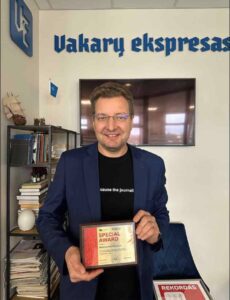 Over the course of this eventful program of meetings – with the leadership of the Media Support Fund, the Lithuanian Union of Journalists, active independentof the Belarusian Association of Journalists, a visit to the leading media outlet DELFI.lt, an interview with the public broadcaster LRT, meetings with students and teachers of Klaipeda University – Sergiy Tomilenko sincerely thanks Dainius Redziavičius, who headed the Lithuanian Union of Journalists (Lietuvos žurnalistų sąjunga) for many years.
Over the course of this eventful program of meetings – with the leadership of the Media Support Fund, the Lithuanian Union of Journalists, active independentof the Belarusian Association of Journalists, a visit to the leading media outlet DELFI.lt, an interview with the public broadcaster LRT, meetings with students and teachers of Klaipeda University – Sergiy Tomilenko sincerely thanks Dainius Redziavičius, who headed the Lithuanian Union of Journalists (Lietuvos žurnalistų sąjunga) for many years.
This year, Mr. Redziavičius assumed a new responsible position – the Inspector of Journalistic Ethics of Lithuania (essentially, a state ombudsman who protects human rights in the media). The priorities of the institution under his leadership are the protection of human rights, countering disinformation, fostering interagency cooperation, upholding ethical standards in the age of AI, and promoting education/media literacy.
For his consistent support of independent Ukrainian journalism from the first days of the full-scale war, for his great solidarity and real assistance to Ukrainian media, the NUJU awarded Dainius Redziavičius a special award.
What’s next? The NUJU is ready to work with Lithuanian partners on the roadmap for the Ukrainian direction of the Lithuanian Media Support Fund, focusing on identifying priority regions, assistance instruments, and measurable impact criteria. The Union will also approach colleagues in Lithuania and at the EU level with a proposal to finance the pilot phase of support for Ukrainian newsrooms.
NUJU Information Service

 THE NATIONAL UNION OF
JOURNALISTS OF UKRAINE
THE NATIONAL UNION OF
JOURNALISTS OF UKRAINE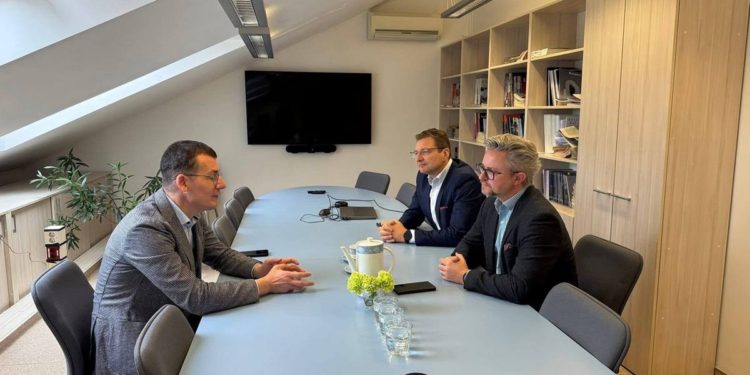
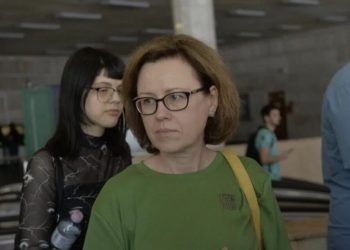
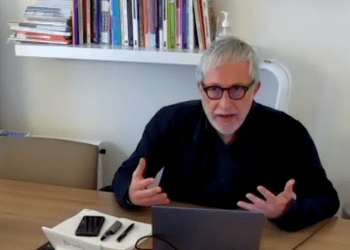
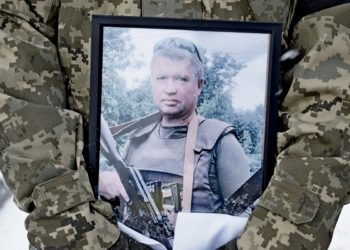













Discussion about this post